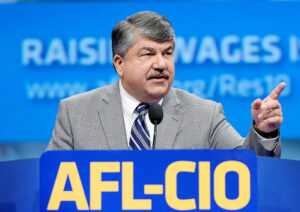BSP may hike rates by 50 bps — poll

By Keisha B. Ta-asan, Reporter
THE PHILIPPINE central bank is widely expected to raise benchmark interest rates by 50 basis points (bps) at its meeting on Thursday, as the US Federal Reserve is also likely to tighten policy this week.
A BusinessWorld poll last week showed 14 out of 15 analysts expect the Monetary Board (MB) to continue hiking borrowing costs at its Dec. 15 meeting.
For 13 analysts, the central bank may deliver a 50-bp rate increase, while one economist sees a 25-bp hike.
On the other hand, one analyst expects the Bangko Sentral ng Pilipinas (BSP) to keep rates unchanged.
“The outcome of the US FOMC (Federal Open Market Committee) meeting overnight, the trajectory of the dollar-peso exchange rate and November’s inflation print will be key considerations for the BSP’s decision,” ANZ Research economist Debalika Sarkar said.
“We believe that the central bank will maintain a comfortable interest rate differential with the US to support the peso and limit the pass-through effect on domestic inflation, which is already running far above the tolerance limit,” she added.
The BSP has hiked policy rates by 300 bps since May to keep rising prices in check, with the key rate now at 5%.
Meanwhile, the US Federal Reserve has raised borrowing costs by 375 bps since March to a range between 3.75% and 4%. It is widely expected to deliver a smaller rate hike of just 50 bps on Dec. 13-14 following four straight 75-bp increases.
“Definitely, the size of the Fed rate hike that will be announced just the day before the BSP Monetary Board meets [will be a key consideration for the BSP]; our base case is that the Fed will pivot, too, to a smaller rate increase,” Pantheon Macroeconomics Chief Emerging Asia Economist Miguel Chanco said.
“The current inflation print suggests that the BSP will opt for a 50-bp hike in its next policy meeting on Dec. 15, following an expected similar-sized hike by the US Federal Reserve, and in a bid to bring inflation back to a target-consistent path for 2023,” Security Bank Corp. Chief Economist Robert Dan J. Roces said.
Mr. Roces said it is important to see if inflation is being driven by “temporary” factors such as holiday-induced demand or weather-related supply disruptions.
“The rise in the prices of goods and services during the period leading up to and including Christmas can have implications for inflation as it causes retailers to raise prices to capitalize on the increased demand for their products,” he said.
Given already high prices of food due to agricultural losses from recent typhoons, inflationary risks are on the upside, he added.
Headline inflation picked up to 8% in November from 7.7% in October and 3.7% in November 2021. For the 11-month period, inflation averaged 5.6%, still lower than the BSP’s 5.8% full-year forecast but well above its 2-4% target.
“The inflation rate is bound to stay at an accelerated level until the end of the year because of the heightened demand brought about by the onset of the holiday season,” Colegio de San Juan de Letran Graduate School Associate Professor Emmanuel J. Lopez said.
“One thing working favorably for the local economy is the continued appreciation of the local currency against the US dollar. Although this is not brought about by a stronger local economy but by the weak US economy and China’s lockdown, the appreciation of the peso has brought relief to the once-depreciating/ailing local currency,” Mr. Lopez added.
After hitting a new record low of P59 per dollar this year, the peso has rebounded, returning to the P55 level this month.
On Friday, the local unit closed at P55.37 against the dollar, up by eight centavos from its P55.45 close on Wednesday.
BSP MAY STILL HIKE RATES IN 2023The central bank is also likely to extend its tightening cycle until next year as inflation is still expected to overshoot its 2-4% target, analysts said.
China Banking Corp. Chief Economist Domini S. Velasquez said core inflation will likely peak in the first quarter of 2023.
“This means that aside from the December hike, the BSP will continue its monetary tightening cycle until early next year. Our forecast for 2023 average inflation of 4.6% is higher than the BSP’s,” she said.
Core inflation, which discounts volatile prices of food and fuel, climbed 6.5% in November from 5.9% in October. In the eleven months to November, core inflation averaged 3.7%.
For next year, the BSP sees inflation averaging 4.3% before easing to 3.1% in 2024.
Ms. Velasquez added that the benchmark policy rate of the BSP may reach 6% next year, and policy easing, if any, will only happen in the fourth quarter as inflation is seen to return within target by then.
“Both the BSP and the National Government will need to keep a close eye on the trajectory of core inflation, which could bleed into the first half of 2023 and prove more difficult to tame if left unchecked,” Security Bank’s Mr. Roces said.
“Should prices increase beyond normal market fluctuations and bleed into the core as well, the BSP may need to take further, stronger action to prevent a larger inflationary problem from developing, while the government will need to ramp up subsidies and price caps to complement the monetary side,” he added.
For UnionBank of the Philippines, Inc. Chief Economist Ruben Carlo O. Asuncion, the BSP will need to ensure inflation expectations remain anchored.
“While we hope for faster disinflation soon and thus, an early termination of the BSP’s rate hiking cycle, the additional challenge of an upbeat domestic demand backdrop will also require a higher terminal policy rate to reprioritize savings among households and thus, mitigate the demand-side contribution to inflation pressures,” he said.
The BSP is also likely to continue mirroring the Fed’s actions until next year, said ING Bank N.V. Manila Senior Economist Nicholas Antonio T. Mapa.
“If the Fed carries out its pivot, the BSP will be able to do its own pivot with a pause in the second quarter of 2023 and rate cuts in the second half next year,” he said.
However, for Pantheon Macroeconomics’ Mr. Chanco, the 50-bp rate hike in December may be the BSP’s last increase in this tightening cycle.
“Not much more are needed to guarantee that inflation will fall back to within the target range by around third quarter next year, at the latest, thanks to the moderation in global food and oil inflation,” he said.




